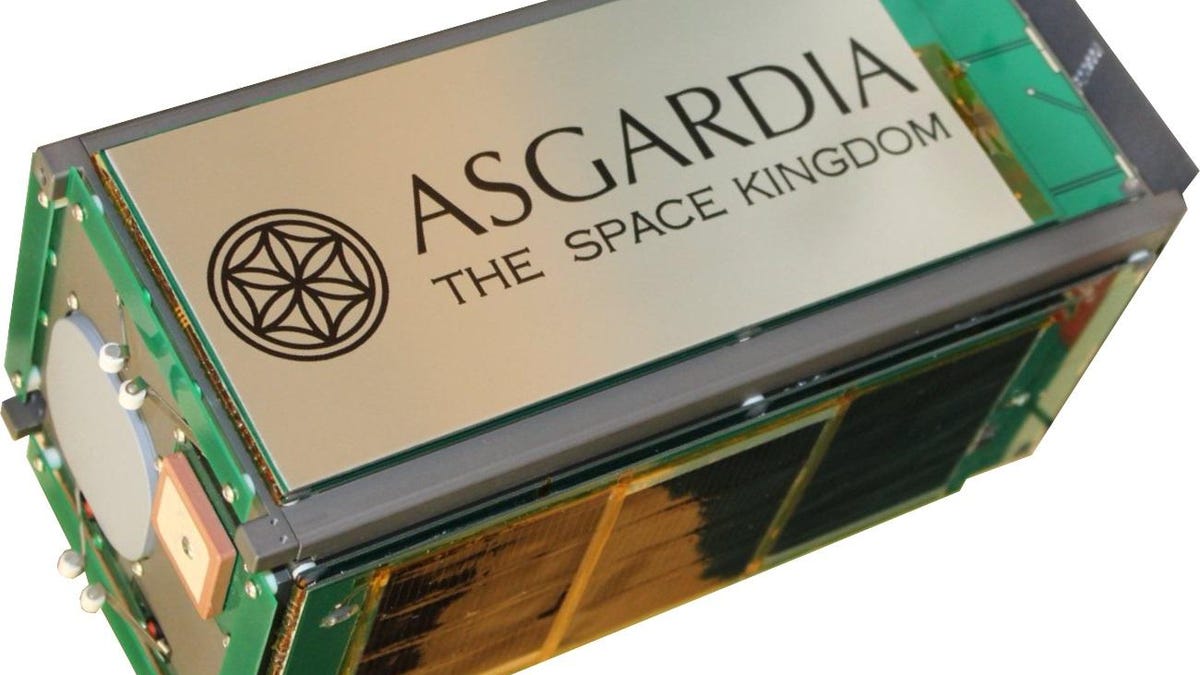Asgardia, the 'World's First Space Kingdom,' Could Soon Crash Back to Earth
According to satellite tracking providers, Asgardia's cubesat is expected to burn up in the atmosphere this month.

A rendering of Asgardia-1.
Humanity's first space nation is on the verge of losing its lone piece of self-declared sovereign territory in space.
According to tracking data from the US Space Force and other sources, the Asgardia-1 satellite is expected to reenter Earth's atmosphere and burn up as soon as Sunday.
The orbiter is the centerpiece of the experimental digital nation dubbed Asgardia that launched in 2017. In addition to representing Asgardia's toe-hold on its literally extraterrestrial territory, the milk carton-size cubesat carries digital copies of Asgardia's Constitution, flag and data about Asgardian "citizens" who opted into the experiment in digital nation-building.
According to a statement, the satellite also has a scientific mission to study the impact of space radiation on digital data storage.
Updates from the US Space Force Space-Track database dating back to July 20 show that Asgardia-1's altitude has been decaying, which is space-speak for the satellite being pulled back toward Earth's atmosphere by our planet's gravity. The most recent update predicts it will reenter the atmosphere and burn up on Sept. 14.
Satview, another site that tracks space junk, predicts Asgardia-1 will reenter even sooner, on Sept. 11.
A representative for Asgardia said they were "looking into it" and had no further comment.
It's unclear what the loss of Asgardia-1 could do for the digital nation's goal of becoming a recognized state, or its longer-term goal of seeing the first human born in space under its flag.
The United Nations does not acknowledge Asgardia's claim of statehood and experts in space law have also said it cannot be decaled a 'space kingdom,' but the organization remains active online, with an election for the position of "head of nation" set to take place Friday.

